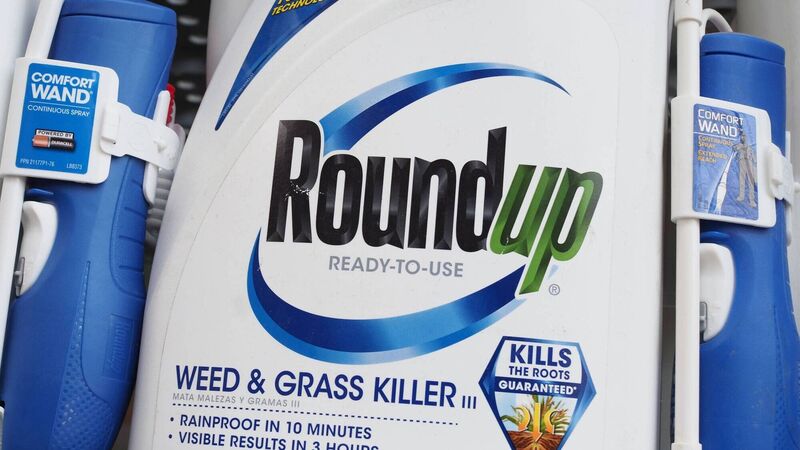Scientists in Galway find glyphosate traces in one quarter of people tested

A total of 68 families took par in the study, including 14 whom were living on farms that spray glyphosate-based pesticides. Picture: Robyn Beck/AFP via Getty Images
Scientists investigating exposure to glyphosate, found in Roundup commonly sprayed on weeds, among Irish households have detected low levels of the herbicide in a quarter of people tested.
In the first study of its kind to investigate levels of background exposure to glyphosate here, scientists at University of Galway identified a number of priority substances in the people tested, for which further information on human exposure is required.










